10 Biggest Vegetable Gardening Mistakes
Gardening for the last 16 years has taught me several lessons, many of which I learned the hard way. In this post, I share my picks for the 10 biggest vegetable gardening mistakes.
Learn from my vegetable gardening mistakes and avoid making your own. What lessons have you learned in the garden? Share in the comments below, and let’s learn together.
“You must learn from the mistakes of others. You can’t possibly live long enough to make them all yourself.”
Samuel Levenson
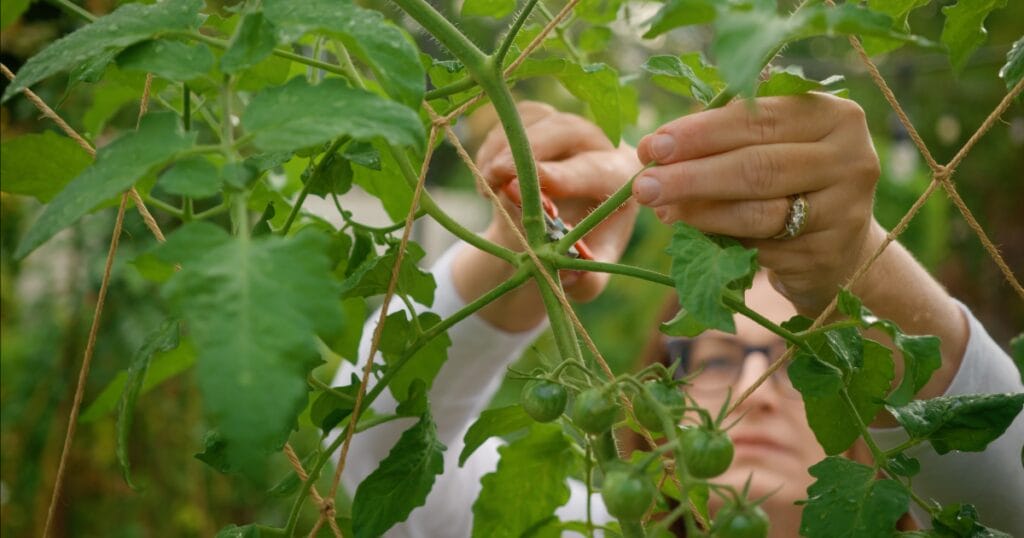
1. Starting too big
Many people feel like they need to fill their entire available space with garden beds before starting a garden. The process seems overwhelming and many fail to begin. This is one of the most common vegetable garden mistakes I see when helping others to start a garden.
It’s been said, “There is only one way to eat an elephant: a bite at a time.” The same principle applies to gardening. How do you start a garden? One bed at a time. Having an overall plan for your garden area is important, but it’s more important to start small and then add growing areas or garden beds as you gain experience.
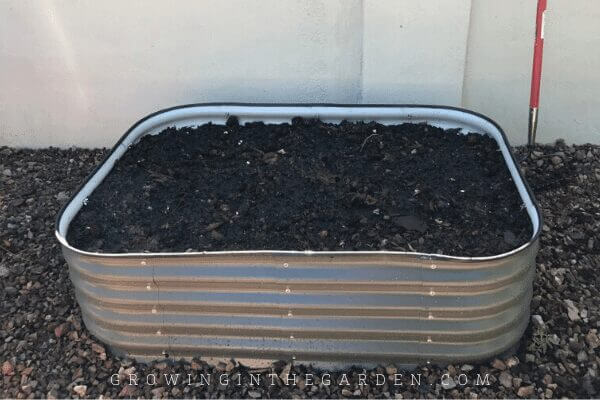
2. Choosing a bad location for your garden
No amount of gardening skill can overcome a lack of sunlight and water in the garden.
- Vegetables grown in the shade are often less productive and also more prone to insect damage and disease.
- Without easy access to water, watering your garden is inconvenient and you are less likely to do it on a regular schedule.
Choose a garden area that gets at least 6 hours of sunlight (preferably morning sun) and has easy access to water to give your garden the best chance to be successful.
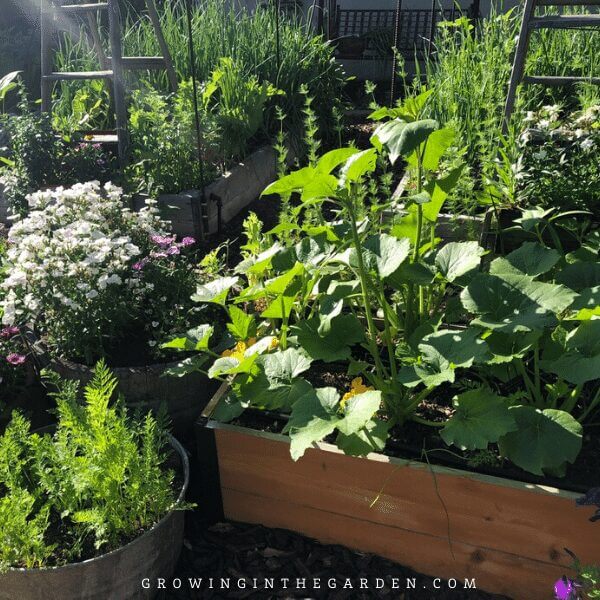
3. Thinking soil doesn’t matter
Garden soil is more than just dirt. Dirt lacks microbes and beneficial nutrients, and it’s sandy, rocky, and without substance. On the other hand, soil is full of life. Plants access the water, air, and nutrients needed to survive through the soil.
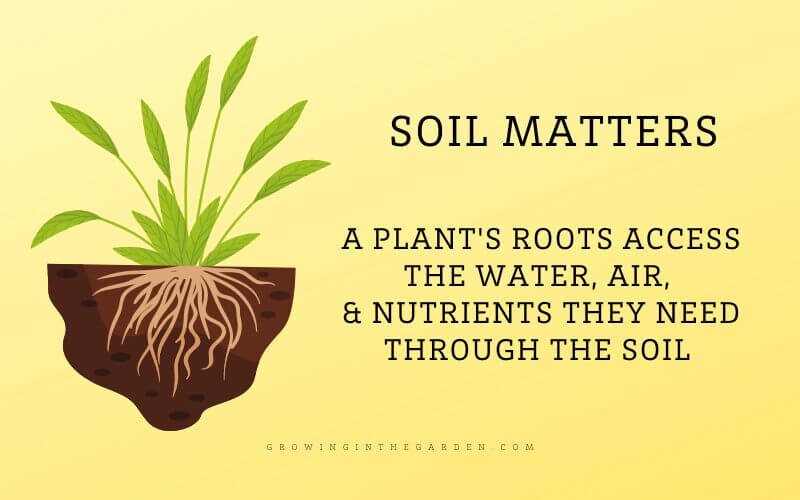
It’s important to have your soil tested. A soil test can determine the health of your soil. This is the soil test kit I use. It’s very simple to use. Add organic fertilizer based on the recommendations.
We ask a lot of garden soil. We expect plants to sprout, grow, flower, and produce fruit in a relatively short amount of time. Good soil is the foundation for a healthy and productive garden. These articles may be helpful, “Best Soil for Raised Beds” and “Get Your Soil Ready for Planting”.
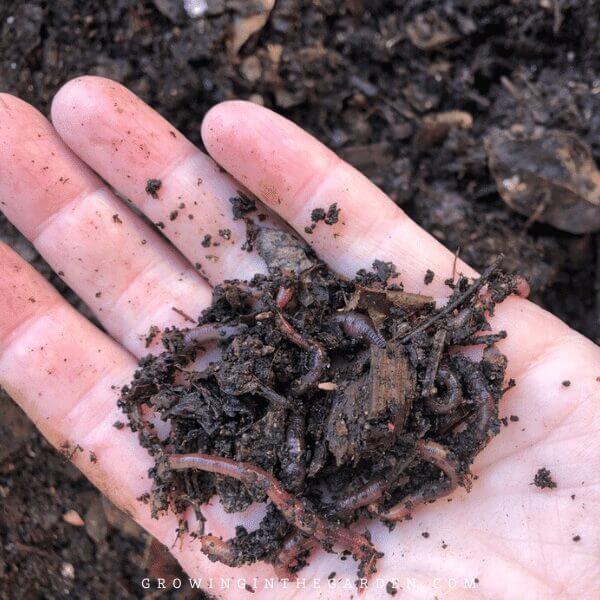
4. Planting at the wrong time
When you begin gardening, there are new terms to learn: cool-season crops, warm-season crops, annual, perennial, frost date, days to harvest, direct sowing, and more. Rather than trying to interpret all the information and hope for the best, learn from the wisdom of experienced gardeners.
Find a planting calendar meant for your area. Following a trusted planting guide takes the guesswork out of when to plant. If you live in the low desert of Arizona, these are the planting guides I use.

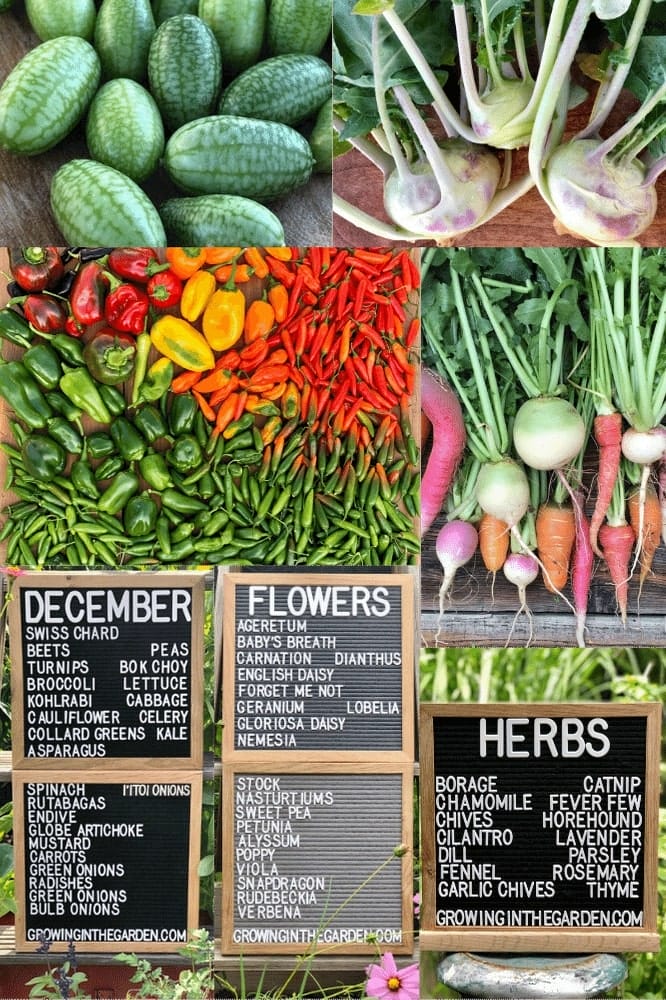
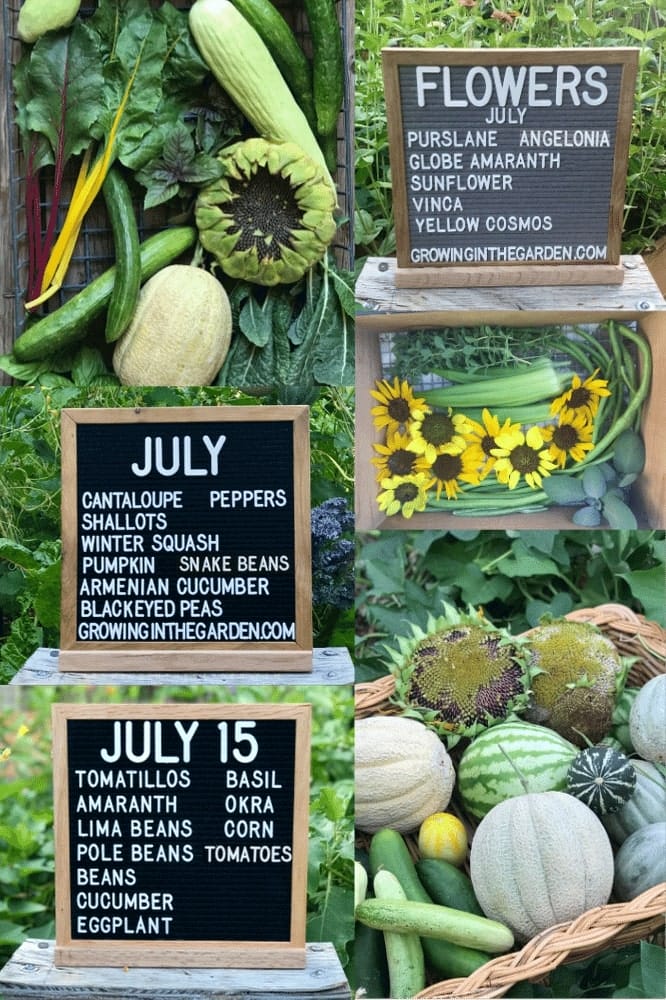
5. Planting too many seeds and transplants
Overcrowding plants prohibits airflow, blocks sunlight, and promotes pests and disease. This is the vegetable-gardening mistake I am guilty of most often. I want to plant “all the things!”
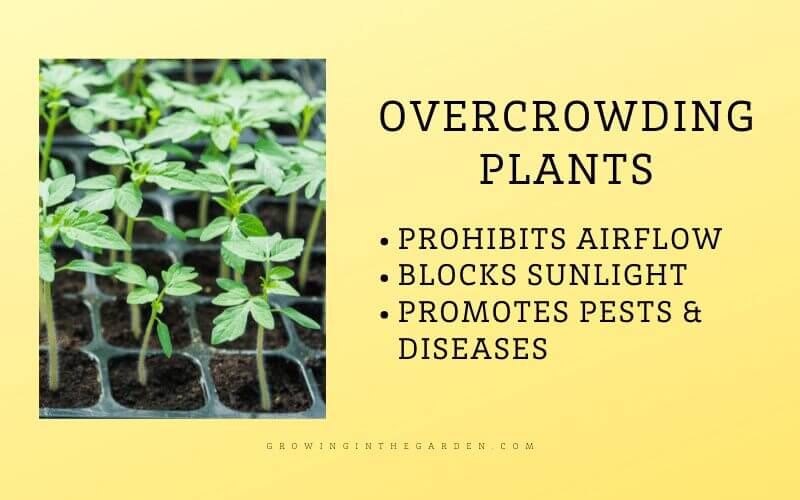
It is important to understand the mature size and spacing needs of each plant (this information is usually on the seed packet) and allow enough room for mature plants. This article may be helpful, “Plant Spacing in Square-Foot Gardens”.
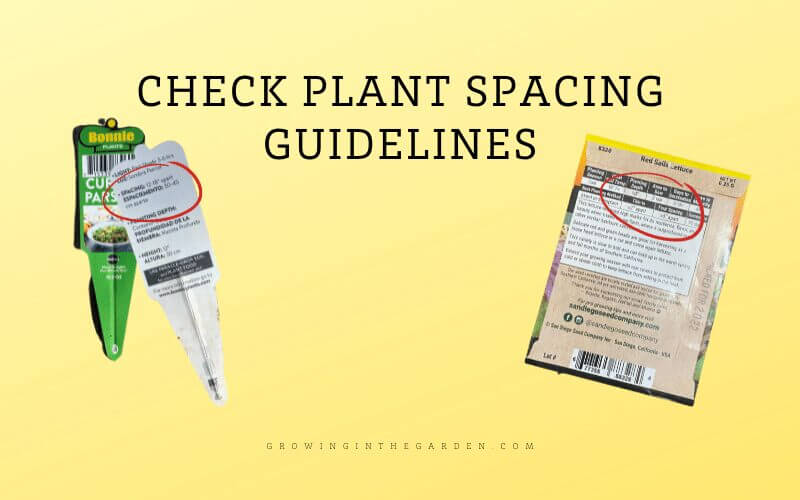
6. Improper watering techniques
Incorrect watering causes many common problems in plants.
- Watering plants too much or too little.
- Watering at the wrong time of day.
- Giving your plants shallow frequent water instead of root-stretching deep drinks.
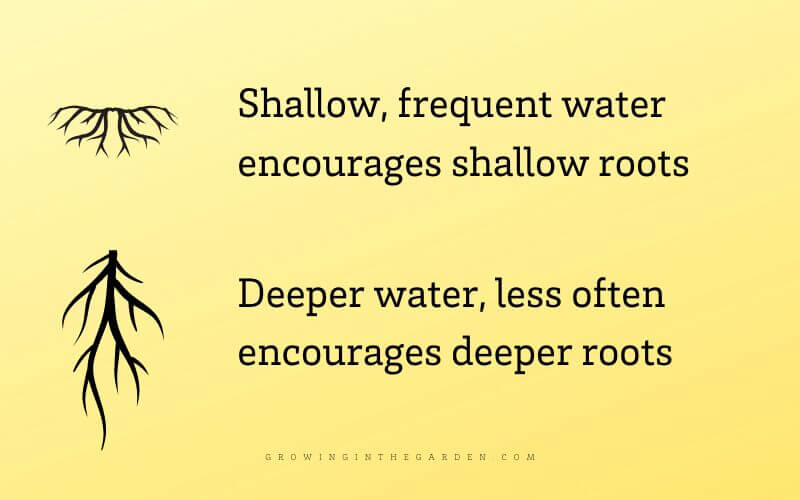
This article, “Best Way to Water Raised Bed Gardens”, may help you understand correct watering principles. I water with these Garden Grids.

7. Not mulching your garden
There are so many reasons to add mulch to your garden. Don’t forget to do this important task
Unmulched crops need more frequent watering and are more prone to weeds and temperature fluctuations. Adding mulch to your garden each season is a simple way to add organic matter to the soil.
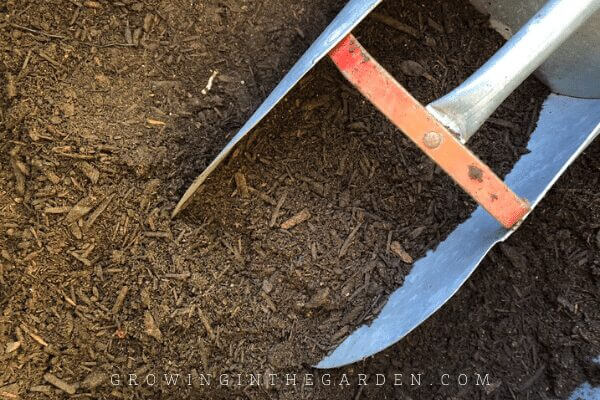
Mulching increases beneficial microorganisms and earthworms, and also helps prevent soil compaction and erosion. Learn more about mulching in this blogpost.
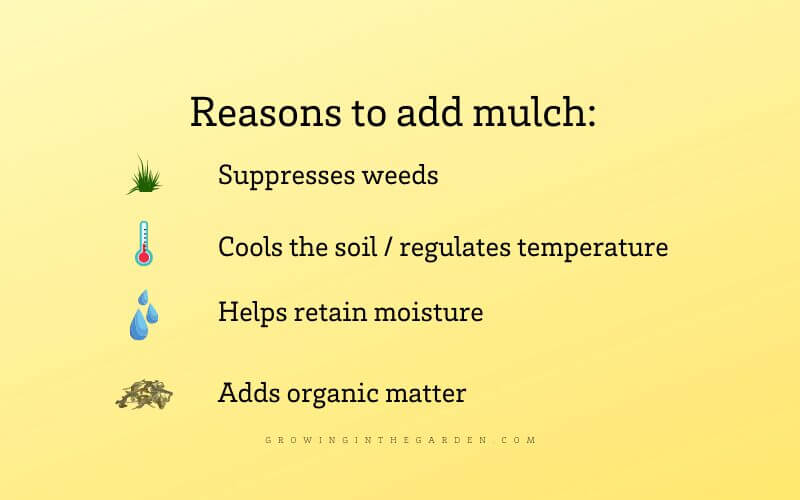
8. Not spending time in the garden each day
If you are an infrequent visitor to your garden, small problems (such as watering, pests, and disease) may get out of control and become difficult to manage. When you make a habit of spending time in your garden each day, you are more likely to notice issues while they are small and easily contained.
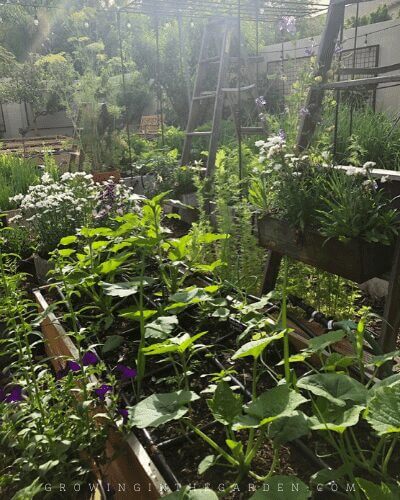
Wondering what to do when you visit your garden each day? I have a video and blogpost all about it.
9. Using pesticides in your garden
Pesticides kill the good guys as well as the bad. You need pollinators and beneficial insects to help maintain a natural balance in your garden’s ecosystem. Organic gardening techniques aren’t just good for you and the environment, they are what is best for your plants.
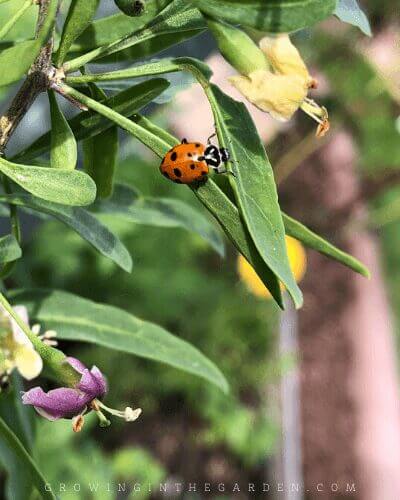
10. Harvesting vegetables late or not at all
Leaving ripe vegetables unpicked signals to a plant that its job is completed and it does not need to produce any more.
Alternatively, frequent harvesting encourages more production. Getting to the point where vegetables are ready to harvest is a big deal! Celebrate by picking and enjoying the fruits of your labor.
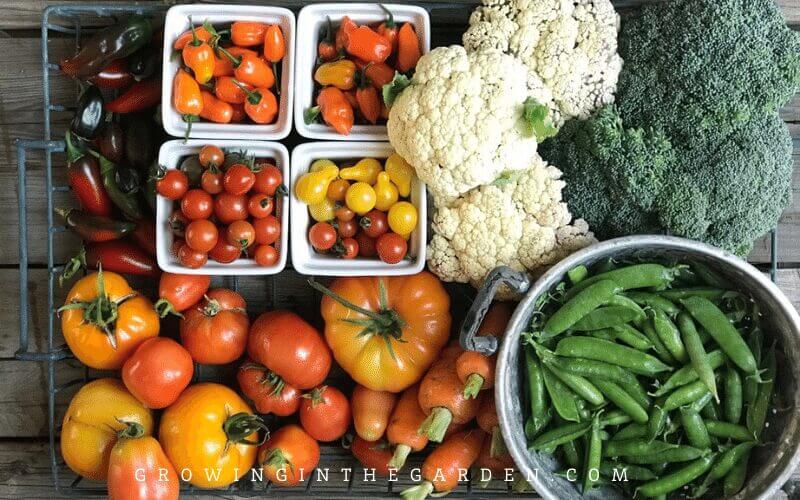
If you enjoyed this article about vegetable gardening mistakes, please share it:
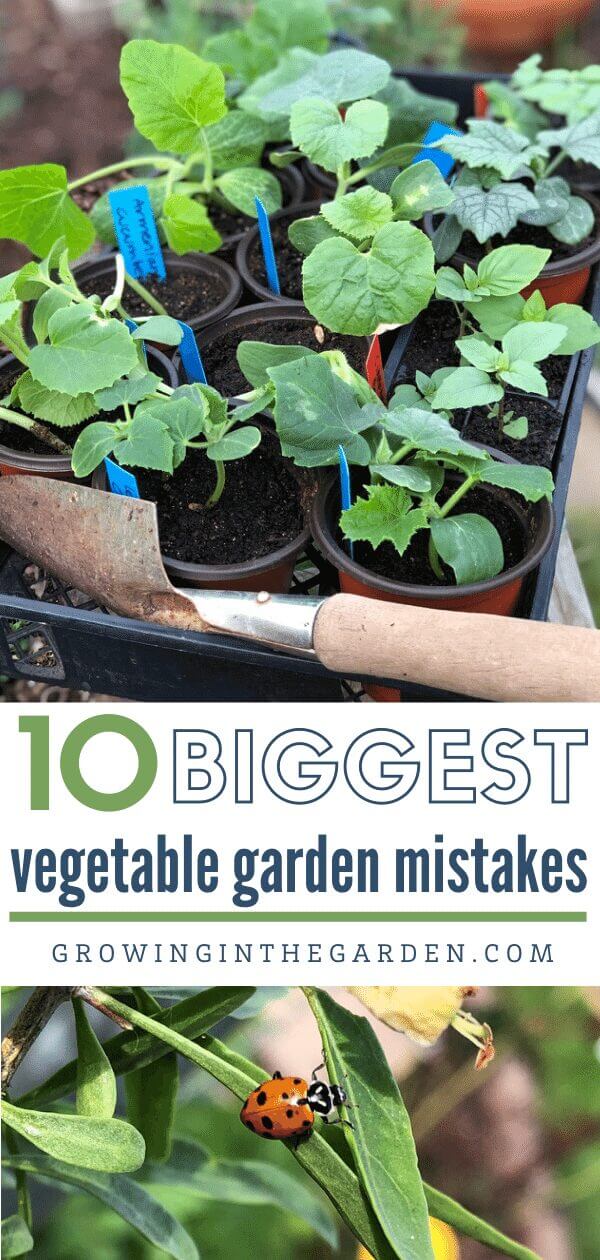
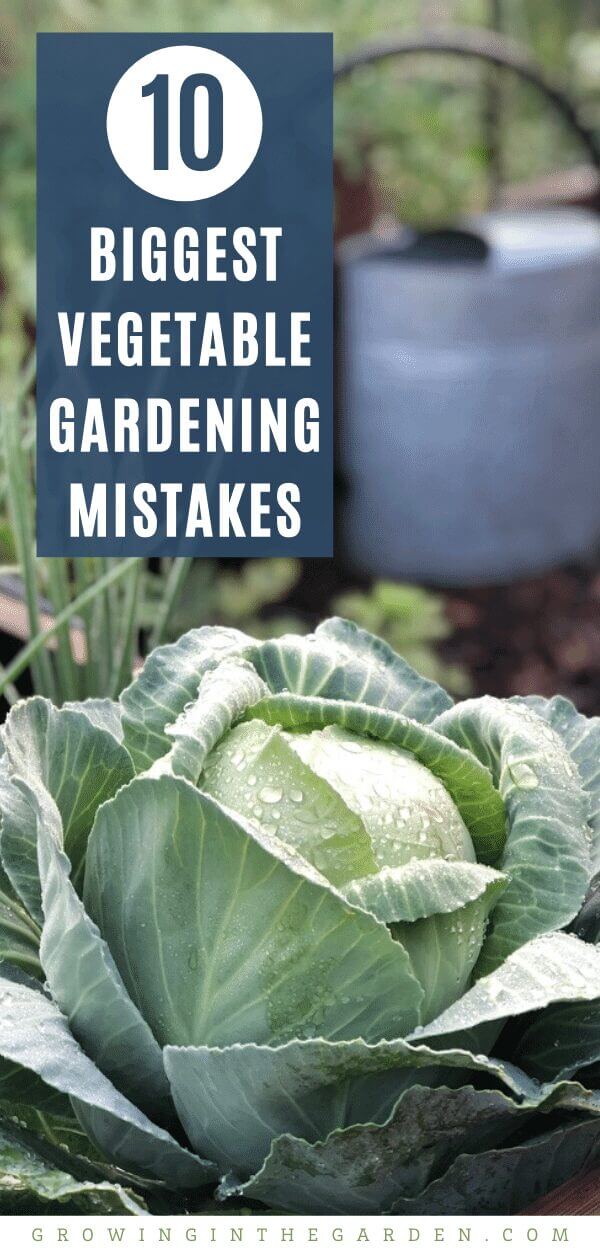
I partnered with Extra Space Storage for this article about the 10 biggest vegetable gardening mistakes made by new gardeners. Running out of room inside the house? Store what you’re not using at Extra Space Storage, and then make the most of the room you have outside by starting a garden.
Extra Space Management, Inc. (“Extra Space Storage”) is the second largest owner and/or operator of self-storage properties in the United States and is the largest self-storage management company in the United States. The company Extra Space Storage has over 1,800 self-storage properties, which comprise approximately 1.3 million units and approximately 140 million square feet of rentable storage space offering customers conveniently located and secure storage units across the country, including boat storage, RV storage and business storage. Extra Space Storage is working to position their brand on Instagram as an expert and trusted resource in the home-organization and storage space. Historically, one of their most successful content themes revolves around maximizing the lack of space at home.

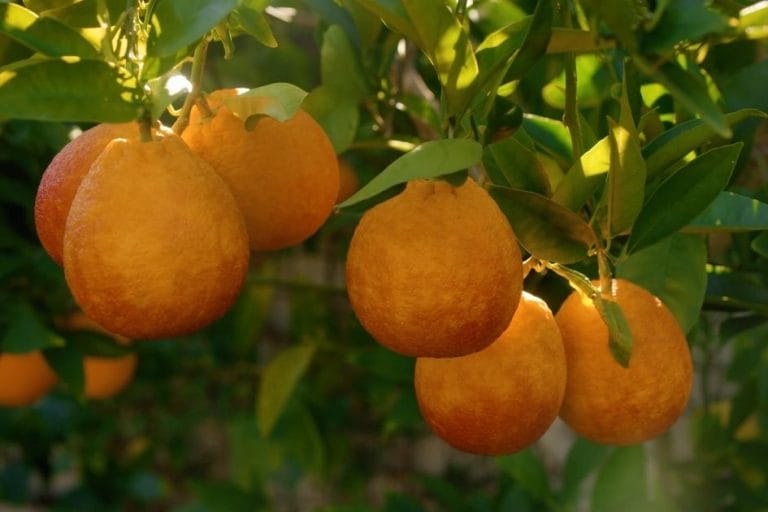
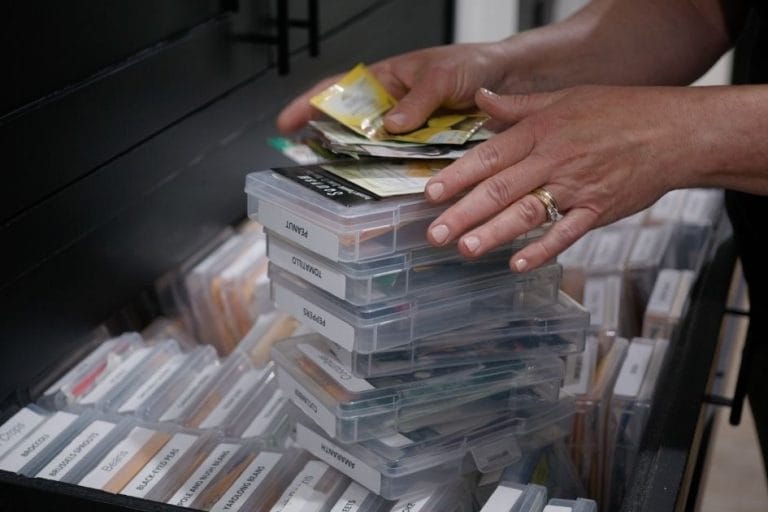


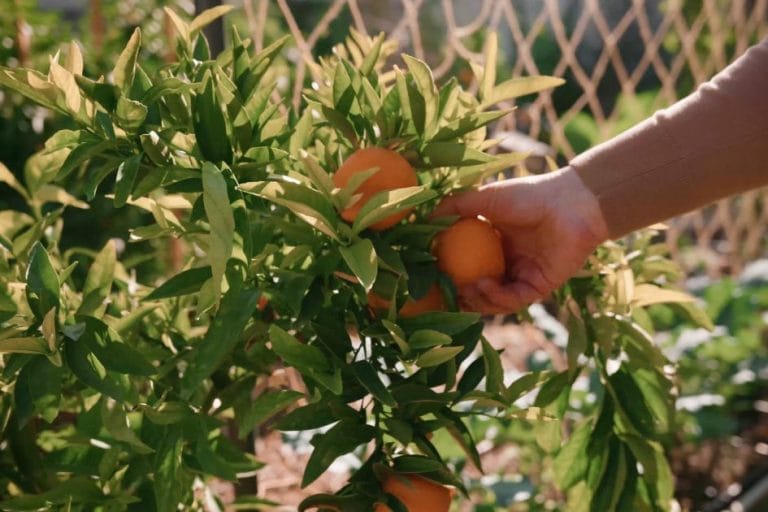
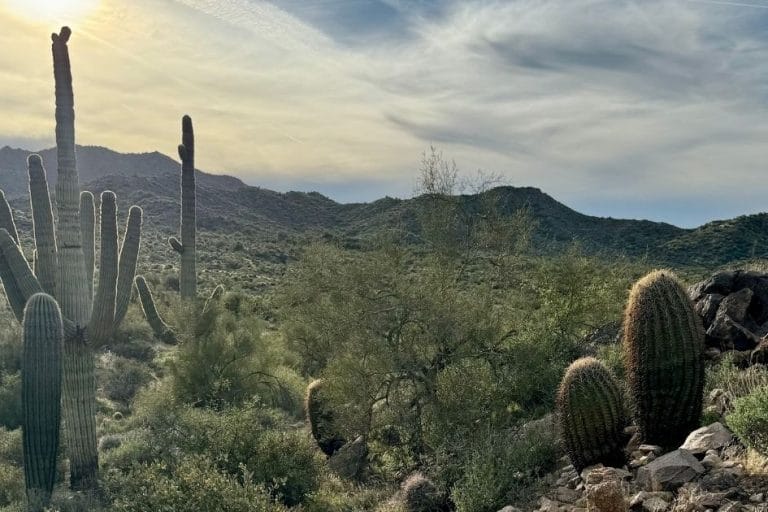
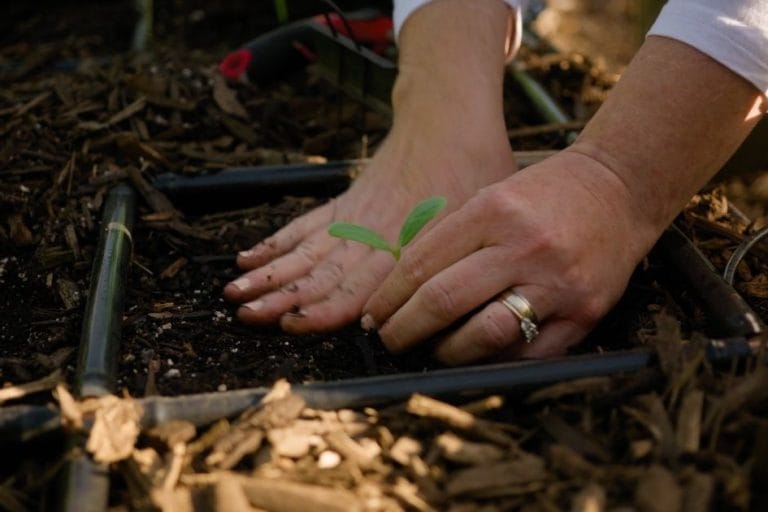
Leave a comment on 10 Biggest Vegetable Gardening Mistakes